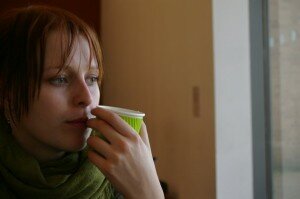The Grocery Geography.
Sunday, February 28th, 2010Over the last year, one of the things I’m most proud of is having stayed put. I didn’t move to a new country*, I barely took any planes and apart from regularly visiting the bearded maths captain [BMC] in Linz, Austria, I was VERY stable. For me at least.
Even though I fell head first, properly and oh so significantly into love with the aforementioned BMC, I didn’t suddenly drop everything and move to Linz. Considering the catalysts for the last two moves to Sheffield and Berlin, this is incredibly surprising. But maybe, despite having no regrets and being rather grateful for those experiences in their own odd ways, it appears that I’ve learnt something.
Or perhaps I feel at home.
And when considering learning from my experiences or finding a home, I should add in finally. I mean, to move countries on the spur of the moment for a man is romantic, but to do it twice (in one year, and for different men) is not just careless, but also incredibly foolish. I don’t know what Oscar Wilde’s Lady Bracknell would say about a third time, but considering how she felt about the loss of a parent, I can’t imagine she’d be very kind. So maybe I should focus more on the fact that I feel at home in Berlin, and one of the things that has helped that has been that I’ve been very happy in my apartment.
I’m in a great position in Kreuzberg, my room is south-facing and full of light AND has nice floors, and the bathroom and kitchen, while not perfect – do satisfy my requirements by having a good, hot shower and a stove and oven that don’t suck. I’m friends with several of my neighbours and know almost everyone in the building by name and have babysit half the kids and shared cake with their parents. And until recently, I had managed to maintain a relatively good relationship with my flatmate, only to have it sour from some hideously poor communication on their behalf in the last couple of weeks. Myeh. I could go on for hours. But I won’t.
Anyway, I might be looking for a new place to live and that honestly petrifies me. Of course there are the general considerations of whether there’s enough light to keep my happily provided with Vitamin D, and building repair and cost which are tempered somewhat by the bright sides of maybe finally having a native German speaker for a flatmate. But then there are some more Berlin specific challenges to deal with, like whether I would end up with coal heating and what discount supermarkets are nearby.
I’m unlikely to move away from Kreuzberg, and from all reports coal heating is rarely in use in the former West German parts of Berlin, but I’m wary. I spent a month in a coal heated sublet when I first moved to Berlin and despite the coziness of having an actual fire in your bedroom, the novelty of hauling fuel and old ash up and down stairs and waiting 3 hours for your room to defrost is over in about a week.
More realistically I’m worried about what stores might be nearby. I’m pretty sure that besides the weather and the state of the S-Bahn, discount supermarkets are one of the most frequent topics of conversation amongst people living in Berlin. Unlike weather and public transport which are more universally recognised, the matter of Berlin grocery shopping is very localised and has its own language: Is Netto or LIDL better? Does your Penny Markt actually carry any stock? Is visiting ALDI a soul destroying experience for everyone? Which place has the best range of organic goods? Why did PLUS close? Why is Edeka easy to forget about? Do you find visiting the Karlstadt basement (a ‘proper’ supermarket) akin to a religious experience for you?
Of course, there are proper supermarkets which have everything you’d expect in a store – but due to both cost and convenience, most people end up shopping at their nearest discount store only to find that it doesn’t carry certain products. Then, because they have a favourite type of cheese or coffee they end up schlepping to the store that does stock it anyway. In the end you develop favourites, and even though it’s a little further away than a couple of other supermarkets, Netto seems to have won me over, they’ve got a good range of organic food that I can actually afford, stock Spreelinge pickled cucumbers and have a proper section devoted to baking goods. So that’s another reason why I love my apartment and am hesitant to leave it, I might end up far from a Netto store. And what would happen if there was only an Aldi nearby? I’d be liable to turn suicidal.
* Unlike 2008 in which I started in Adelaide, re-visited Helsinki for 4 months and would have stayed if I’d been able to find a job I loved, moved to Sheffield in the UK temporarily and then, after making a temporary stop for a couple of weeks in Hong Kong and Hanoi, went back to Adelaide to properly pack up before moving to Berlin. Eek.

